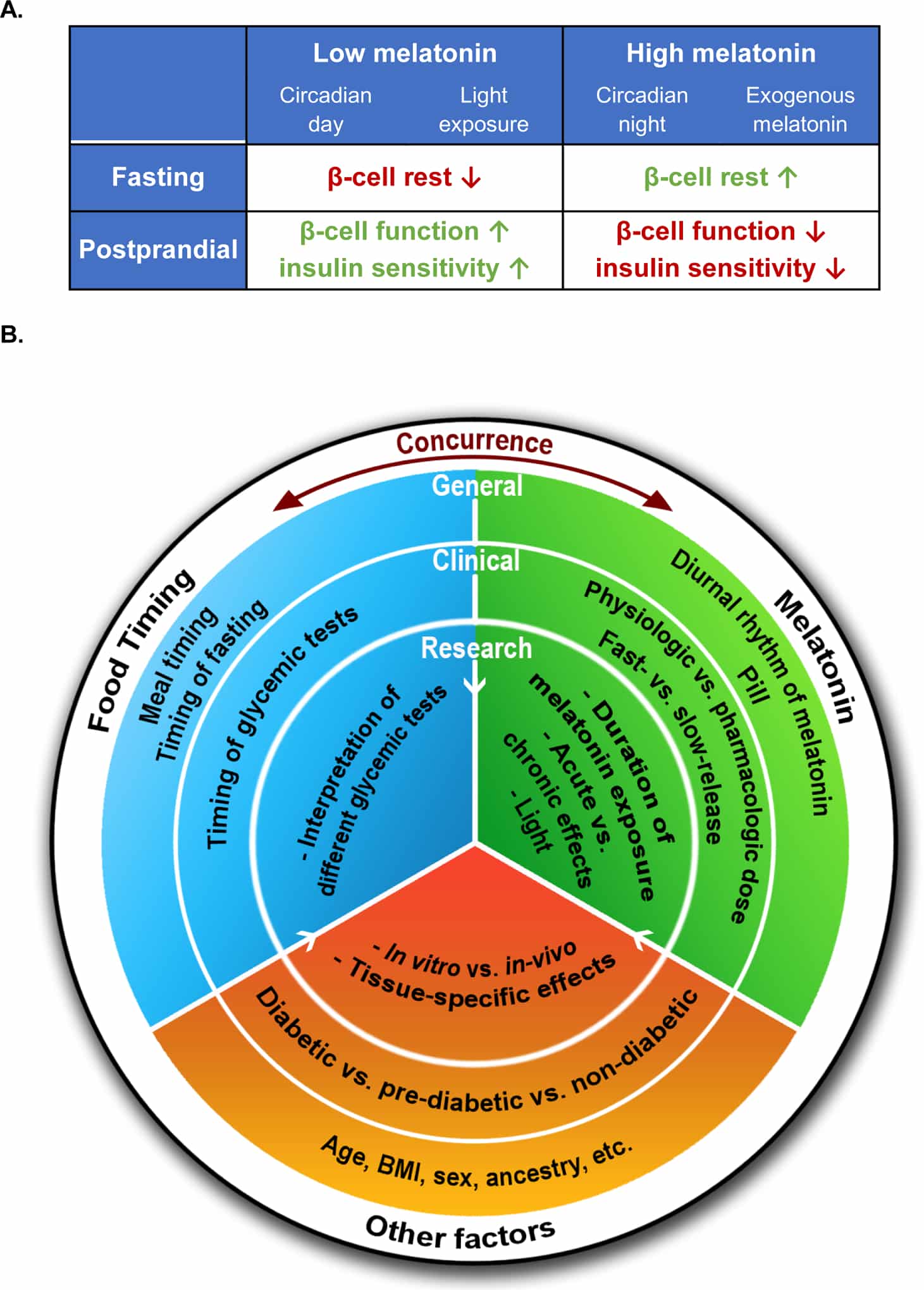Melatonin Effects on Glucose Metabolism: Time To Unlock the Controversy

The past decade has witnessed a revival of interest in the hormone melatonin, partly attributable to the discovery that genetic variation in MTNR1B – the melatonin receptor gene – is a risk factor for impaired fasting glucose and type 2 diabetes (T2D). Despite intensive investigation, there is considerable confusion and seemingly conflicting data on the metabolic effects of melatonin and MTNR1B variation, and disagreement on whether melatonin is metabolically beneficial or deleterious, a crucial issue for melatonin agonist/antagonist drug development and dosing time. We provide a conceptual framework – anchored in the dimension of ‘time’ – to reconcile paradoxical findings in the literature. We propose that the relative timing between elevated melatonin concentrations and glycemic challenge should be considered to better understand the mechanisms and therapeutic opportunities of melatonin signaling in glycemic health and disease.
Keywords: MTNR1B; circadian system; glucose metabolism; melatonin; type 2 diabetes.

